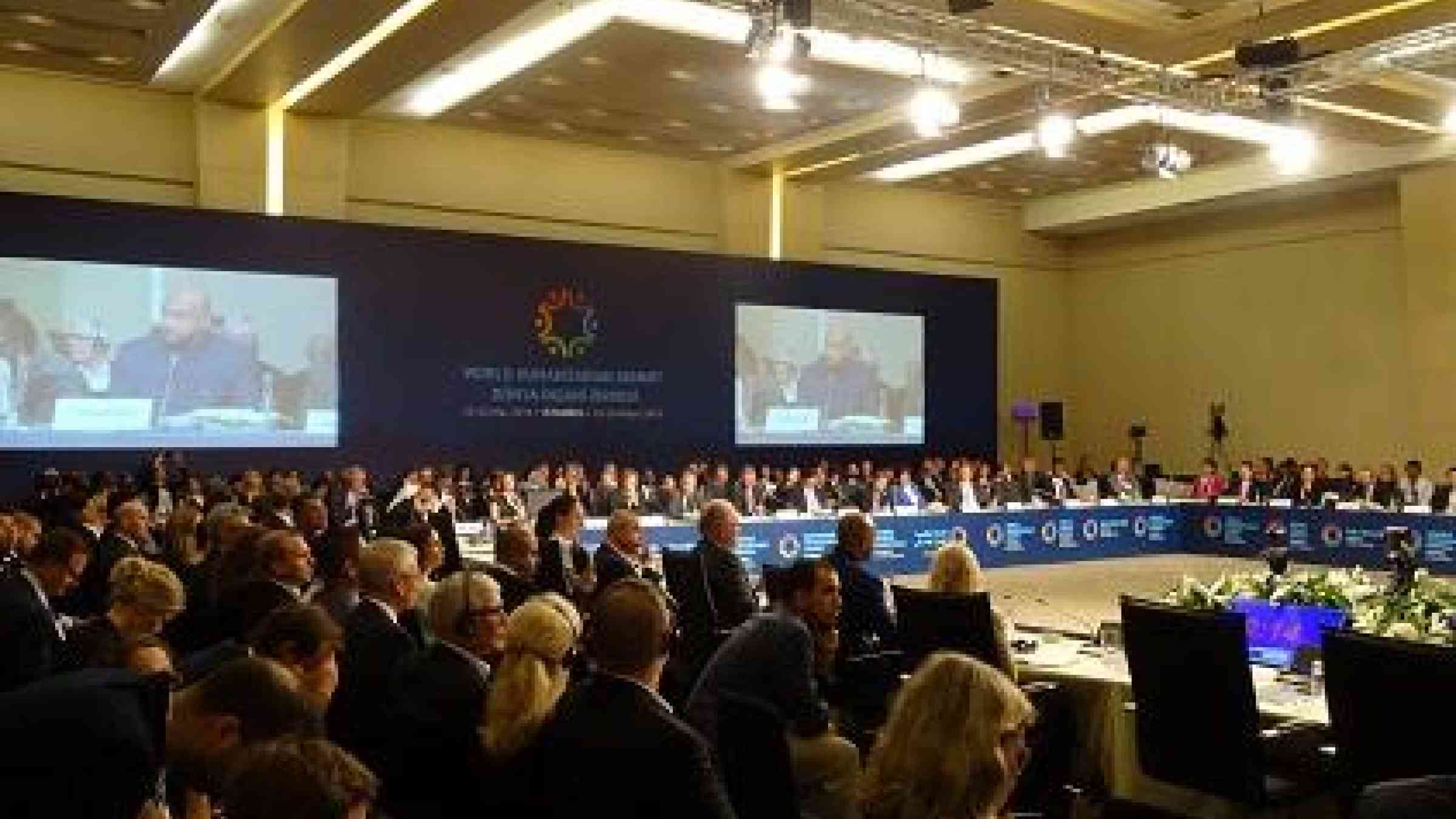UN and businesses team up to prevent and respond to crises

ISTANBUL, Turkey, 24 May 2016 – A major global network launches today at the World Humanitarian Summit in Istanbul to facilitate business engagement in crisis situations through pre-positioning supplies, meeting humanitarian needs and providing resources, knowledge and expertise to disaster prevention.
Businesses can now play a central role in preventing and responding to crises through the Connecting Business Initiative by increasing the scale and effectiveness of their engagement in a coordinated manner. Capacity will increase through local business networks and a global IT platform where companies, the UN, governments and civil society can engage to reduce disaster risk and prepare for and respond to crises.
Through intense consultations across the world, more than 900 companies voiced a demand for a coordination mechanism such as this and many partners are already supporting the initiative.
The President of the UPS Foundation Eduardo Martinez commented: “This exciting initiative opens the way for the business community to engage in a systematic and impactful way in humanitarian response and to develop ways in which our resources can help to build communities and nations which are more resilient to disasters.”
The President of the Philippine Disaster Resilience Foundation Butch Meily added: “Through the Connecting Business Initiative we can be part of creating the international best practice to put people at the centre and help new countries to join this effort.”
The Connecting Business Initiative is led by the United Nations Office for Disaster Risk Reduction (UNISDR), the United Nations Office for the Coordination of Humanitarian Affairs (OCHA) and the United Nations Development Programme (UNDP). It has already garnered support from local business networks from the Philippines, Madagascar, Malaysia, Fiji, Turkey, East Africa, Myanmar and Sri Lanka in addition to Hilton Foundation, UPS Foundation, Salesforce, the United Nations Global Compact, The United Nations Children's Emergency Fund, the International Federation of Red Cross and Red Crescent Societies, and the governments of Belgium, Fiji, Australia, Finland and Turkey.
Opening the Special Session on Connecting Business at the World Humanitarian Summit, UNDP Administrator Helen Clark said: “The private sector is already a strong and vital partner in crisis response and prevention work, bringing resources, skills, and expertise to very challenging situations. If we are to overcome these enormous humanitarian crises we now face, we must continue to look more creatively beyond the traditional models of prevention and response. These global collaborations with the private sector and other partners will be a big part of the solution.”
UN Under-Secretary-General for Humanitarian Affairs and Emergency Relief Coordinator Stephen O'Brien said: "This initiative has the potential to transform the way business engages to help people in need across the world. The Connecting Business Initiative will add strength and structure to our expanding public private partnerships and the way we prepare for and respond to humanitarian emergencies. By coming together, we can make a real difference in bringing positive change to the lives of crisis-affected people".
Robert Glasser, Special Representative of the Secretary-General (SRSG) for Disaster Risk Reduction added, “There is a need for greater understanding of how to avoid creating new risk through risk informed investment in areas like construction. This initiative will promote a more risk-informed business community which will help reduce future disaster losses as well as opening the way for the private sector to engage in the response and reconstruction phases of major disasters.”
More than 130 million people are in need of humanitarian assistance in the world today and 60 million people have been forcibly displaced. UN-coordinated strategic response plans to provide life-saving aid and protection to the most vulnerable people require nearly US$21 billion. Through the Connecting Business Initiative, private sector solutions can be fully leveraged to alleviate the situation.
The Special Session on Connecting Business was attended by more than 300 high-level representatives of governments, the private sector, non-governmental organizations, affected people and media. The initiative aims to mobilize over 10,000 partners over the next five years through a new online portal and to assist with the creation and strengthening of 40 private sector-led networks for disaster risk reduction, emergency preparedness, response and recovery.